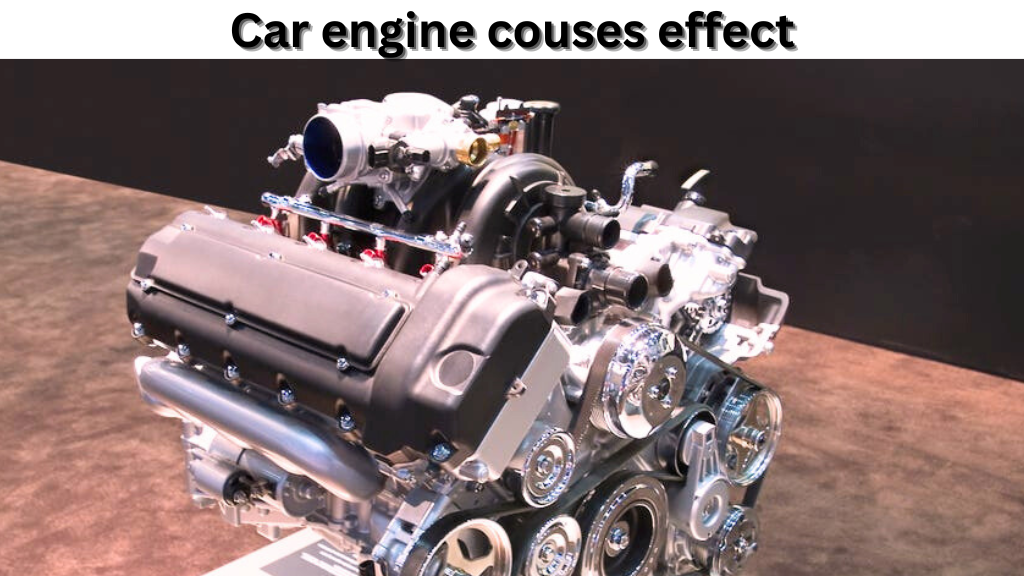What Liquids Can Destroy a Car Engine?
The Engine is the heart of your car, a complex system of components that work together to ensure smooth operation. One of what liquid can destroy a car engine the keys to ensuring your engine’s longevity and performance lies in the fluids that circulate within it.
These fluids are essential for cooling, lubrication, and fuel efficiency. However, introducing the wrong liquids into the engine can cause significant damage, leading to costly repairs or complete engine failure.
In this article, we will discuss various liquids that can cause serious harm to a car engine, why they’re dangerous, and how to prevent engine damage by avoiding them.
1. Water: A Silent Engine Destroyer what liquid can destroy a car engine
Water is vital for your car’s cooling system, but it becomes a serious problem if it enters other parts of the engine or the fuel system.
How Water Damages the Engine:
- Hydrolocking: This is one of the most severe results of water entering the engine. When water gets into the combustion chamber, it doesn’t compress like air does. This creates a blockage, preventing the engine from turning over. It can bend or break pistons, connecting rods, or even the crankshaft, resulting in a costly repair.
- Corrosion: Water can lead to rusting within the engine. If water finds its way into the engine block, pistons, or cylinder walls, it can lead to corrosion. This damages engine parts and can result in serious long-term issues.
- Electrical Failures: Water can also damage electrical components, such as the alternator or wiring, causing short circuits or complete electrical failure.
How to Prevent Water Damage:
- Ensure your engine’s air intake is sealed properly, as water can easily enter if seals are damaged, especially in rainy conditions or while driving through deep puddles.
- Avoid high-water crossings and driving through floods that can overwhelm your vehicle’s intake.
2. Oil Contaminants: When Fuel or Coolant Mixes with Oil what liquid can destroy a car engine
Oil is critical for keeping the engine’s moving parts lubricated and operating smoothly. But when fuel or coolant gets mixed with oil, it can lead to serious consequences.
Fuel Contamination in Oil:
- How It Occurs: Fuel can leak into the engine oil if the fuel injectors are malfunctioning, or a crack in the piston occurs. This causes gasoline to mix with the oil.
- Impact on the Engine: This dilution of oil reduces its ability to lubricate the engine. As a result, friction between the engine’s parts increases, leading to excessive wear and potential engine seizure or overheating.
- Long-Term Effects: Over time, this mix can form sludge, clogging essential oil passages and impairing the engine’s functionality.
Coolant Contamination in Oil:
- How It Happens: A cracked head gasket or other internal leaks can allow coolant to enter the oil system. This is common when the engine overheats and puts excessive pressure on the seals.
- Effects on the Engine: When coolant mixes with oil, it forms a milky substance that reduces lubrication and can clog oil channels. This leads to overheating and could cause the engine to seize due to inadequate lubrication.
- Long-Term Damage: If the problem isn’t fixed promptly, the engine components suffer from wear and corrosion, leading to eventual engine failure.
How to Prevent Contamination:
- Regularly monitor oil and coolant levels. If you notice irregularities such as a milky appearance in the oil or frequent overheating, have the car inspected immediately.
- Keep your cooling system in optimal condition by replacing old or cracked seals and gaskets to prevent coolant leaks.
3. Brake Fluid: A Corrosive Threat what liquid can destroy a car engine
Brake fluid is essential for the vehicle’s braking system, but it’s also corrosive. If brake fluid contaminates the engine, it can cause serious damage.
How Brake Fluid Affects the Engine:
- Corrosion of Seals and Gaskets: Brake fluid is chemically designed to resist high temperatures and pressures in the braking system, but it can break down rubber seals and gaskets in the engine, leading to leaks and damage.
- Oil and Fuel Contamination: Brake fluid can mix with engine oil and fuel, causing the engine to malfunction. This contamination leads to poor performance, overheating, and an increased risk of engine failure.
- Damage to Paint and Surfaces: Brake fluid is harmful to a car’s paint and exterior surfaces, causing fading or damage if spilled.
How to Prevent Brake Fluid Damage:
- Ensure that brake fluid is securely contained within the braking system, and check for any leaks near the engine area.
- If brake fluid leakage occurs near the engine, clean it up immediately to avoid any long-term damage.
4. Transmission Fluid: A Hidden Hazard what Liquid Can Destroy a Car Engine
Transmission fluid, like engine oil, helps to keep critical engine parts lubricated. However, it can cause serious problems if it finds its way into the engine system.
How Transmission Fluid Impacts the Engine:
- Formation of Sludge: When transmission fluid mixes with engine oil, it forms a sludge that can clog essential oil passages. This reduces the oil’s ability to lubricate the engine, leading to premature wear and overheating.
- Overheating: Transmission fluid can reduce the engine’s cooling efficiency, potentially causing the engine to overheat and suffer from internal damage.
- Lubrication Loss: Like other contaminants, what liquid can destroy a car engine transmission fluid weakens the engine’s lubrication properties, which increases the likelihood of engine failure due to friction.
How to Prevent Transmission Fluid Contamination:
- Regularly check for leaks in transmission lines and seals, especially if your vehicle starts showing signs of poor engine performance or overheating.
- Ensure that the transmission system is well-maintained to avoid accidental leaks.
5. Coolant: A Threat to Internal Engine Components
Coolant, also known as antifreeze, is a key fluid for regulating the engine’s temperature. However, if coolant leaks into the engine oil or fuel systems, it can be damaging.
How Coolant Affects the Engine:
- Corrosion and Rust: Coolant contains chemicals that can lead to corrosion inside the engine, damaging metal parts and internal components like the cylinder heads or pistons.
- Sludge Formation: If coolant mixes with oil, it creates a “milkshake” sludge that clogs up oil passages. This reduces lubrication, causes overheating, and can ultimately result in engine failure.
- Head Gasket Damage: A blown head gasket can cause coolant to leak into the engine. If the issue is ignored, it can cause significant engine what liquid can destroy a car engine damage.
How to Prevent Coolant Leaks:
- Regularly inspect your cooling system, including hoses, radiators, and seals, to ensure they are intact.
- Keep an eye out for any signs of coolant in the oil, such as a milky appearance or excessive coolant consumption.
6. Dish Soap or Detergents: Unlikely but Harmful
While it’s uncommon, there are cases where people, intentionally or unintentionally, pour dish soap or detergent into the car’s fuel or oil system. Even though this is rare, the consequences can be damaging.
How Dish Soap or Detergents Affect the Engine:
- Disrupting Oil Performance: Dish soap can break down the oil’s lubricating properties, making it less effective. This increases friction within the engine, causing premature wear and tear.
- Clogging the Fuel System: Soap and detergent can create blockages in the fuel system, leading to poor engine performance, misfires, and even what liquid can destroy a car engine total engine failure.
How to Prevent This Issue:
- Never add any substances, such as soap or detergents, to your engine’s oil, fuel, or coolant systems unless specified for those systems.
- Be cautious when handling substances around your vehicle’s engine to avoid accidental contamination.
The fluids circulating through your car are crucial for its smooth operation and longevity. Understanding which liquids can destroy a car engine helps you take necessary precautions to prevent costly damages.
Regular maintenance, inspecting for leaks, and ensuring that the right fluids are used in the correct systems can go a long way in protecting your engine and ensuring your vehicle runs smoothly for years to come.
By keeping a close eye on your engine fluids and addressing what liquid can destroy a car engine any issues early on, you’ll avoid major repairs and extend the life of your car.










